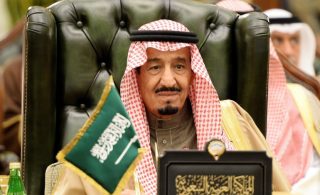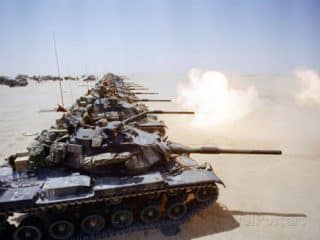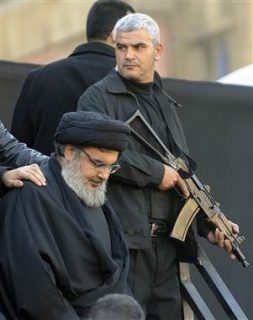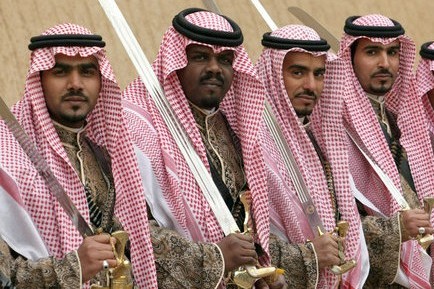 ___
___
… by Viktor Mihkin, …with New Eastern Outlook, Moscow
The seven golden domes of St. Peterburg
[ Editor’s Note: We have the first public mention here in Viktor’s article of the new king actually having been the old king.
That was no surprise to us here at VT, as this musical chairs game has been played before with Saudi transfers of power. Dead kings are not dead until publicly announced as such.
Nothing is done abruptly, because it takes time to reach a consensus among all the competing interests in the land of 10,000 princes.
Public disunity is the last thing that a Victorian age monarchy wants to put on display, when they are at one of the flash points of postmodern geopolitics, where even the US has a blank check preemptive strike doctrine.
The Saudi princes have a lot to fear, as they are all about money and oil, and their usefulness to others… an unusual tightrope walk for royalty. It began with the post WWII deal they made with the US to only sell their oil in dollars, in return for permanent American military protection.
It was a throwback to pre-WWI-era secret diplomacy deals to commit a supposedly-free democratic country to go to war, and where its people knew absolutely nothing of the arrangement.

If ETs landed next week and rounded up the entire extended royal family to take them back home to barbecue as part of some religious feast, how many here would cry a river for the loss to humanity?
I would ask the same about the Bush family and two thirds of Congress. It would make a wonderful referendum list of names to vote on each election.
We all face a permanent existential threat, with secret deals made in our name without our knowledge, to political elites in other countries, whose citizens are also clueless as to how they have been traded like a futures slave market.
Hmm… I might have to write an article about that sometime. That surely is a common interest we all share. We see that our Ukrainian puppet government, which virtually has to shanghai their people into the military, has the prosecution list up to 7500 already, for “no shows”.
ROTC schools are graduating early to pump out 2000 partially-trained first lieutenants to lead green troops in battle for the first time against those they are told are terrorists — when the ROTC kids are actually working for the real terrorists. You just can’t make this stuff up… Jim W. Dean ]
_______________________
The original head choppers?– First published … February 3, 2015 –

The official coming to power of the Saudi King Salman Bin Abdul Aziz Al Saud has invoked numerous comments by experts, journalists, and politicians.
Many a predicting, like with tea leaves, how Saudi policy will change now and what direction the new king will take. Also, many have expressed a view on changing Saudi policy that is fundamentally wrong.
The fact is that the former Prince Salman for the past 5-7 years has been at the helm of the Saudi government, and former King Abdullah, because of his numerous serious diseases, performed only representative functions.
It is one thing to manage policy behind the throne of the old king, who faced the blame for failures, but it is another thing now to manage Saudi Arabia and take personal responsibility for everything that happens inside the kingdom and beyond.
The domestic and international situation today is quite complicated and difficult, and requires non-trivial and bold decisions.
First, this course is aimed at the threats associated with the consequences of the fall in oil prices, the strengthening of the “Islamic State”, as well as opposition from Iran, which is strengthening its influence throughout the Middle East, and its henchmen are increasingly gaining ground in Iraq, Lebanon, and Syria.
The new king is also faced with the growth of the crisis in Yemen, whose government, which enjoyed the support of the Saudis, was overthrown by Houthi rebels backed by Iran. The official representative of Saudi Arabia stated in a recent interview that Riyadh sees an “existential threat” the future of Yemen.

In the short term, the most difficult problem for the new Saudi ruler will be the steady and significant decline in world oil prices.
These prices fell below 50 dollars a barrel, which was a powerful blow to the economy and the government of Saudi Arabia, which is almost entirely dependent on oil revenues.
The decline in prices has led to the fact that in 2015 for the first time in a long time there is a large budget deficit in Riyadh.
According to official government estimates, its volume will reach nearly 31.6 billion euros.
According to the draft budget for this year, Saudi Arabia has planned revenues of 715 billion riyals (156 billion euros) and expenses in the amount of 860 billion riyals (187 billion euros). Experts believe that Saudi Arabia, the largest oil exporter in the world, will all the same maintain its current strategic policy and will not cause problems in the market.
However, the Minister of Petroleum and Mineral Resources of Saudi Arabia Ali ibn Ibrahim Al-Nuaimi made some pretty harsh statements.
“If I cut production, what will happen to my market share? The price will go up, and Russian, Brazilian, and American producers of shale oil will take away my share,” said the Saudi minister. “It does not matter if the price falls to $20 per barrel, $40 per barrel, $50 per barrel, or $60 per barrel.”

It is obvious that the decline in oil prices created new challenges to be faced by King Salman.
First, the kingdom has for decades essentially bought its own internal stability by creating an unusually generous welfare system, in which citizens have free access to health services, receive an education, and have other benefits.
Indeed, since the beginning of the “Arab Spring”, the Saudi government has made great efforts in order to avoid public discontent. Additional funds have been spent under the state program for the unemployed and the poor.
The royal family tried to maintain calm on the streets of the country at any cost, which to this day, at first sight, it succeeded in doing. Unrest and protests faded almost before they began.
During the period of external peace and order over the last three years 60,000 new jobs were created in the security structures. To maintain such a system would be much more difficult, as oil prices have fallen to their lowest level in decades.
Second, with the help of huge oil revenues, Saudi Arabia has created one of the most powerful armies in the Middle East, buying large quantities of modern American weapons and military equipment, as well as hiring thousands of American and European soldiers to train their troops. Now the Saudis have to reduce their expenses, including on the country’s defence and on helping Arab countries.

For example, the United States alone in the period 2006-2013 supplied Riyadh with 7.480 billion dollars worth of weapons.
The portfolio of orders generated during the same period amounted to 57.427 billion dollars. According to the existing portfolio, in 2014-2017 the US will export weapons to Saudi Arabia worth 38.873 billion dollars.
At the same time, the new king is faced with a deep crisis of power in neighbouring Yemen, where President Abed Rabbo Mansour Hadi resigned due to a group of pro-Iranian Shiite Houthis seizing the presidential palace and the capital of Yemen – Sana’a.
However, he since took his resignation letter back, but it is clear that it will not stop the fight for power. Yemen is currently falling apart before our eyes – it is a state without a government, and in fact the Yemeni president was an ally of Saudi Arabia.
Such a development clearly strengthens “Al- Qaeda” and threatens primarily the Saudi monarchy. It is worth knowing that the Houthis are a Shia minority, constituting 15% of the population of Yemen, which successfully rebelled against the government. Iran is using them to establish a bridgehead against Saudi Arabia, while the “Islamic State” threatens from the north, and “Al-Qaeda in the Arabian Peninsula” from the south.
Oddly enough, it has been forced to establish relations with the United States, which have recently been shaken somewhat. The Obama administration is dissatisfied that the oil policy, which Riyadh has enacted in recent years, is causing tremendous harm to oil companies in the United States.
Washington is displeased that on the Syrian front the Saudis conducting their own policy, not looking back at the White House.
In this regard, US Vice President Joe Biden put it rather bluntly:
“The biggest challenge in Syria were our allies in the Middle East: Saudi Arabia, the United Arab Emirates, and other countries. They sought to overthrow Assad with such determination that they provided hundreds of millions of dollars and tens of thousands of tons of weapons to anyone who was willing to fight against him.”
This fact was confirmed by the head of the political committee of the “Hezbollah” brigades in Iraq, Hussein al-Ramahi, who stated that boxes of weapons and ammunition captured by the “Islamic state” bore markings indicating that they belonged to Saudi Arabia.
“Arms and ammunition were seized by Iraqi security forces and militia in the territories liberated from the control of the IS,” – said al-Ramahi, noting that the captured boxes were dropped to terrorists from aircraft, on which there were no identifying markings.
Now is the time for King Salman to either continue to stick to his line, or be forced to negotiate with Washington on joint policy not only in Syria but also in the entire Middle East region.
But in this case he will have to forget about Saudi ambitions and continue to play the role of a junior partner of the United States. But which do the young princes like more, who sleep and see how to modernize their country and start to play a role at least as a regional centre with their enormous financial means.
It is natural that the issue of relations with Iran is an important item on the agenda of the new king, or rather opposition to the ayatollahs who in recent years have consistently strengthened their position in the region.
Despite the lack of high-level dialogue between the US and Iran, despite the endless negotiations on the Iranian nuclear program, Tehran is gradually turning into an important partner for Washington.
Currently, they are united by a common interest – weakening the “Islamic State”. Saudi Arabia also supports this objective, but from the very beginning it was on the side of the Syrian rebels seeking overthrow President Bashar al-Assad.
Tehran’s close contacts with Damascus and good relations with the Shiite leadership in Iraq make Iran a more valuable ally to the United States.

Saudi Arabia, in which the conservative version of Sunni Islam is the official religion, is accused of at least ideologically supporting Sunni extremists and jihadism. Shiite Iran does not have to face such claims.
This is despite the fact that Iran supports the Lebanese movement “Hezbollah”, which is helping Bashar al-Assad, fighting the Syrian rebels, and is considered a terrorist organization by the EU.
But, in contrast to the “Islamic State”, the organization “Hezbollah” is not yet a direct threat to the security of the Western states.
Both the US and Europe are hoping that Iran will have a chilling effect on “Hezbollah”, and to some extent affect the development of the Syrian conflict.
The situation — in which Tehran also has a significant impact on the Shiites of Saudi Arabia, Bahrain, and Yemen — forces the new king to take new efforts to counter Iran.
It is obvious that the future of Saudi Arabia and the position of the king himself, as written by the Egyptian newspaper “Al-Ahram”, will largely depend on how well he will cope with all of these challenging tasks, and whether he can place the kingdom in the concept of the twenty-first century.
Victor Mikhin, member correspondent of RANS, exclusively for the online magazine “New Eastern Outlook”.

Jim W. Dean was an active editor on VT from 2010-2022. He was involved in operations, development, and writing, plus an active schedule of TV and radio interviews.
ATTENTION READERS
We See The World From All Sides and Want YOU To Be Fully InformedIn fact, intentional disinformation is a disgraceful scourge in media today. So to assuage any possible errant incorrect information posted herein, we strongly encourage you to seek corroboration from other non-VT sources before forming an educated opinion.
About VT - Policies & Disclosures - Comment Policy




